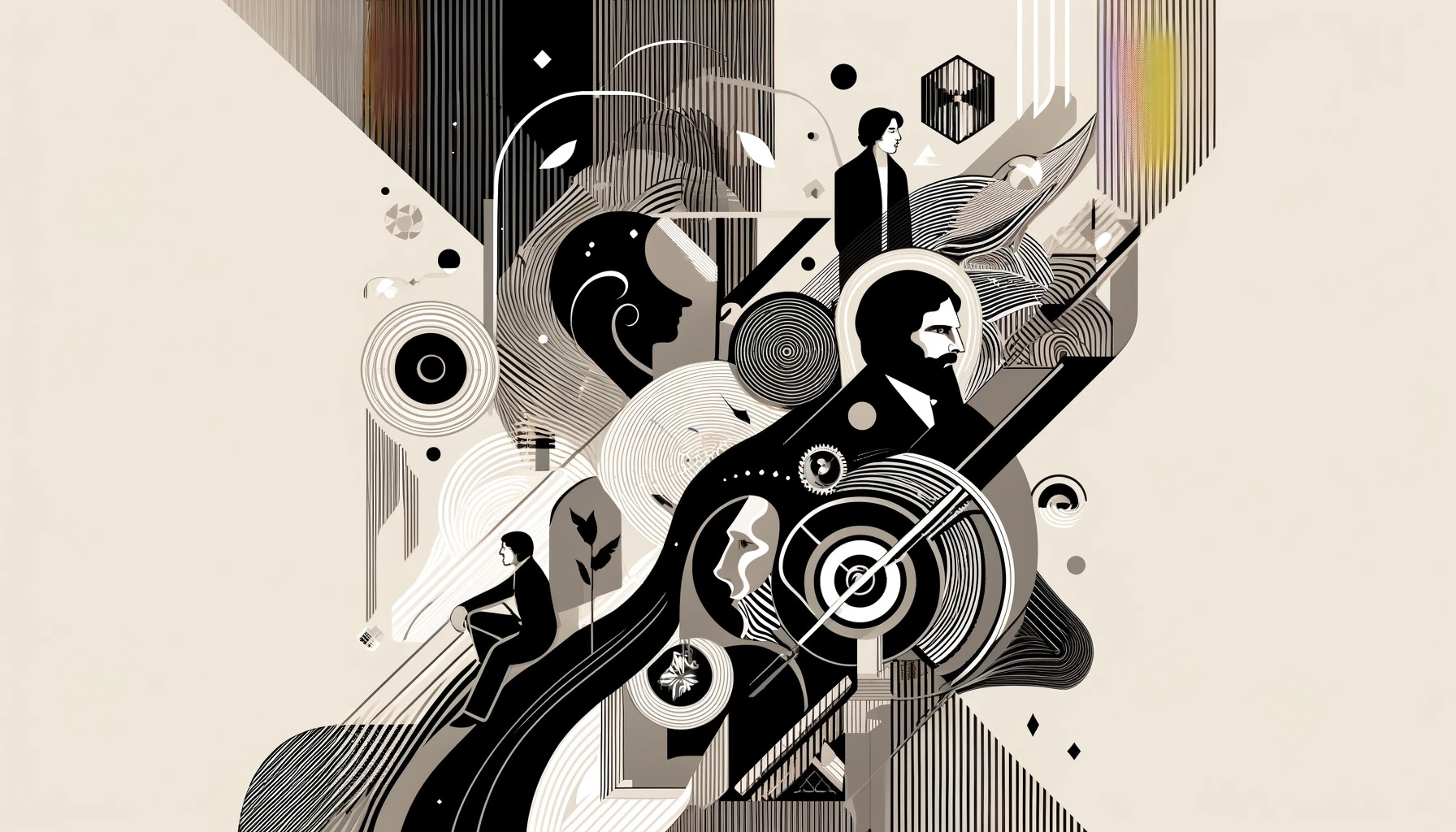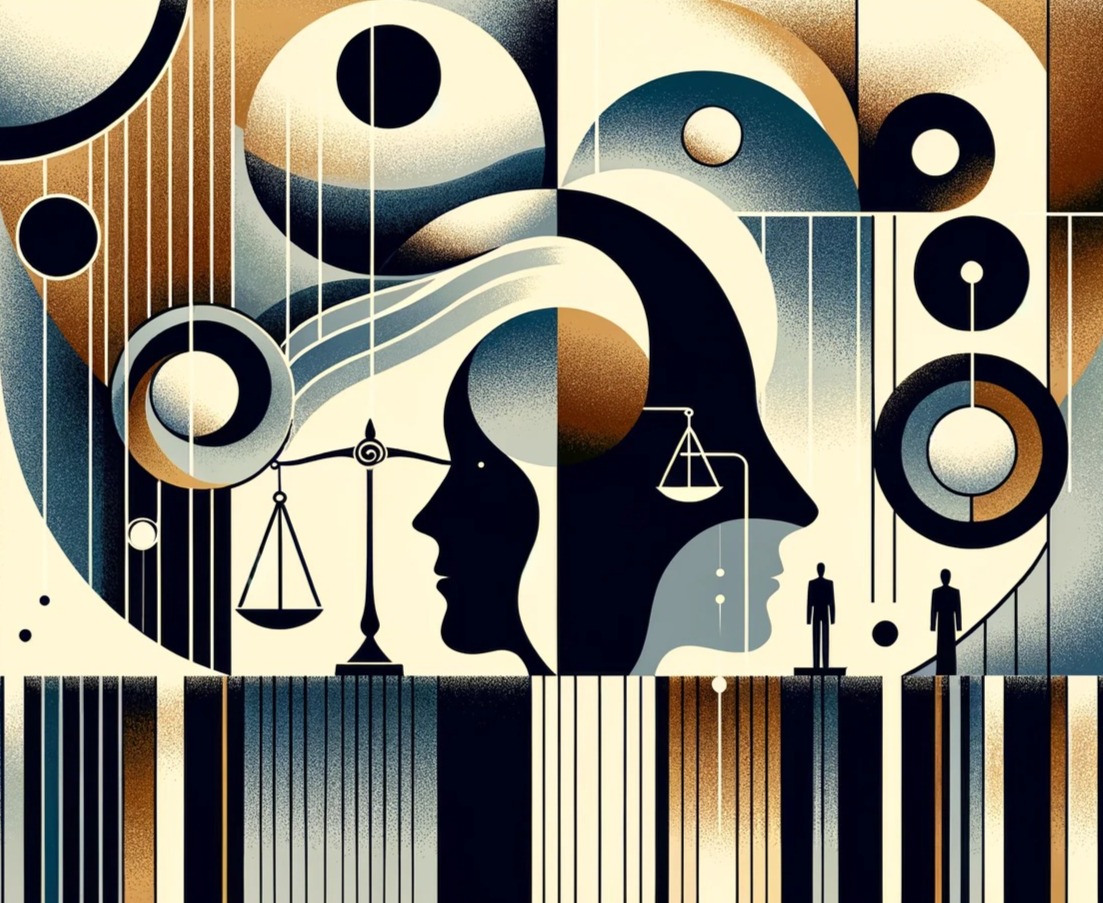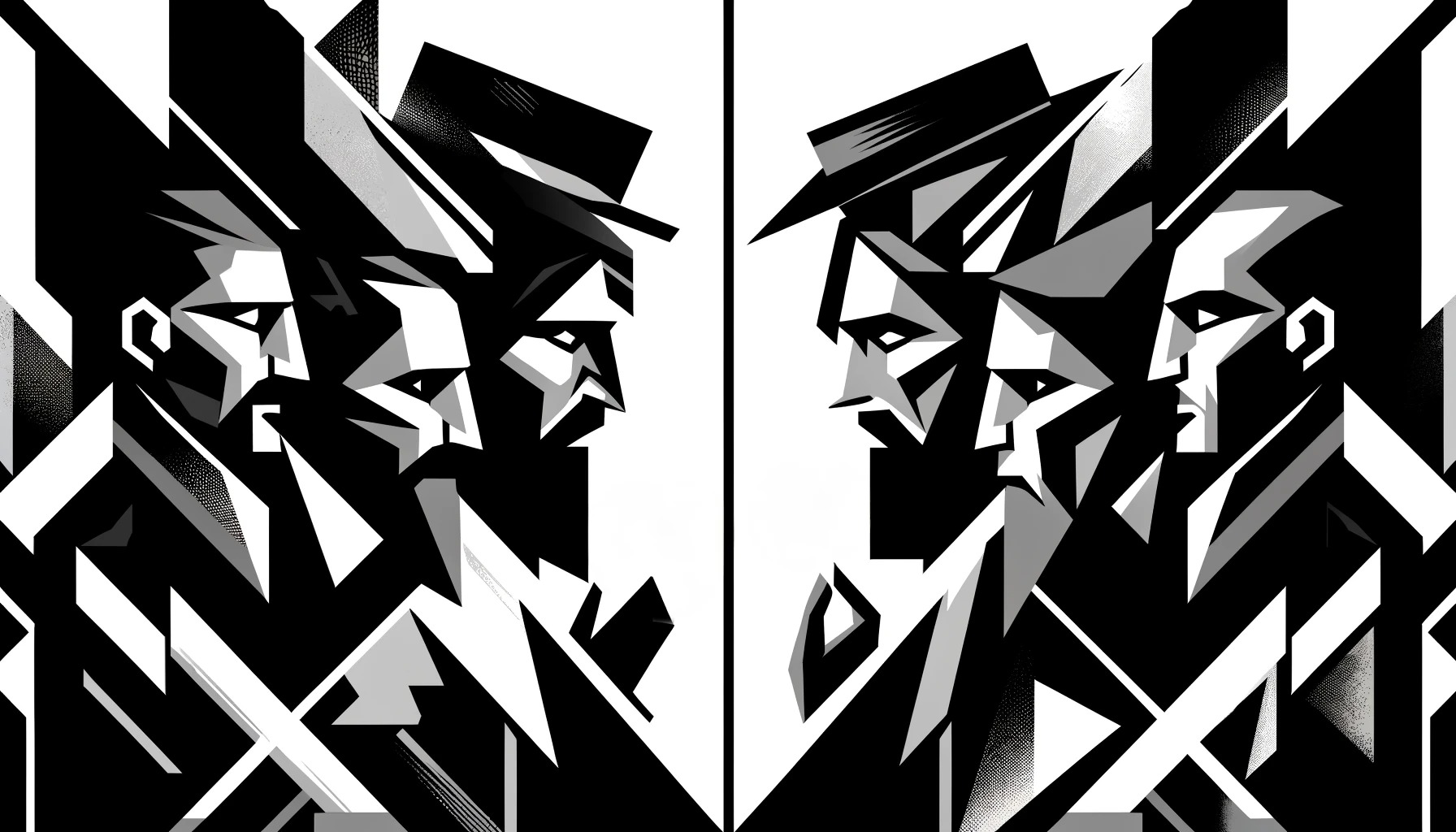Insights for Everyday Life: Lessons from The Brothers Karamazov
The Brothers Karamazov as a self-development beacon might sound like a stretch; however, with a pragmatic interpretation and a dose of psychological theory, the profound wisdom in Dostoevsky's prose could indicate practical pathways toward fulfilled living and effective self-management. And above all, reading this masterpiece was a fascinating journey into Dostoevsky's perspectives on the human mind.

Accepting the Full Spectrum of Our Nature
One of the novel's most compelling themes is the exploration of humanity's duality. Dostoevsky highlights the struggle between good and evil within each of us. This age-old philosophical question finds deep-rooted connections with modern-day psychology.
A Glimpse into Jungian Psychology?
The Karamazovs are a fascinating bunch, aren't they? They're complex, each with their own quirks and contradictions, much like us and people we know. What's interesting for me is how their personalities and relationships in the story can mirror our self-discovery in the modern day. As we follow their lives, we bump into familiar struggles, like the clash between our ideals and impulses.
Now, imagine having a framework that helps explain these patterns in our behavior. This is where psychology steps in. It reminds me of Carl Jung's theory, which, I think, fits here surprisingly well. Jung suggested that our personalities are made up of different archetypes. Think of these as roles we naturally take on in our family and life's story, like the Karamazov brothers do in theirs.
Understanding or simply dwelling on the archetypes can illuminate the unseen forces driving our actions and growth. So, without getting too deep into psychological jargon, the Karamazovs might be a case study in the universal playbook of human behavior that Jung decoded in his own ways.
Did Jung Inspire Dostoevsky?
Fyodor Dostoevsky could not have known of Carl Jung or been inspired by his work on the unconscious or archetypes, as their lifetimes did not overlap in a way that would have made this possible. Dostoevsky died in 1881, while Carl Jung was born in 1875 and did not begin publishing his theories until the early 20th century. Dostoevsky's insights into human psychology and behavior were derived from his own observations, experiences, and the intellectual climate of 19th-century Russia, rather than from the psychoanalytic ideas that would be developed later by figures like Freud and Jung.
Jungian theories, especially his narrative around archetypes and the unconscious, are often mentioned together with Dostoevsky's work because they explore complex inner worlds and the fundamental aspects of human nature. Even though Dostoevsky predated Jung, the Russian author’s characters and narratives resonate with Jungian concepts like archetypes and the collective unconscious, making his literature a fertile ground for psychological analysis through a Jungian lens.
Moral Choices in the Karamazov Experience
The Karamazovs aren't just characters in a novel; they're representations of us at our most human, grappling with the moral quandaries that shape our lives. Their decisions, driven by a blend of temptation and accountability, spotlight the internal compass that guides us all. It's this interplay that resonates so deeply with our own experiences of making tough choices that define who we are.
Linking to the Ongoing Debate in Moral Psychology
The struggles of the Karamazov family, particularly their moral dilemmas, are grounded in the timeless tug-of-war between head and heart. In exploring these conflicts, the novel touches on ideas central to moral psychology, the field that examines how we think about right and wrong.
Take Jonathan Haidt's social intuitionism, for example. This theory suggests that our moral judgments are often the result of instant gut feelings, not deliberate reasoning. The Karamazovs, especially Dimitri with his tempest of emotions and principles, bring this to life. Their story becomes a canvas showing how often our moral choices are made at the moment, shaped by feelings we might not even be aware of.
We see Dimitri's fiery emotions and his sense of what's right battle it out all around us. We're constantly navigating these waters, making choices where our instincts and our logic are at odds.

The Flight to Spirituality and Inner Peace
It's interesting how a story from long ago can echo in today’s search for balance and meaning. The Karamazov brothers, each in their own way, grapple with life’s big questions and the lure of spiritual calm. They show us that our quests might not be so different; be it in a quiet moment of reflection or the middle of a busy workday
Drawing Parallels with Humanistic Psychology
The Karamazovs' journeys reflect our own modern strides towards self-improvement. Just like Alyosha's steps toward spiritual growth can remind us of Maslow’s famous hierarchy, where each level conquered brings us closer to our fullest potential. It's about the small victories and the quiet insights that nudge us forward. Alyosha's path, filled with introspection and growth, can inspire our own journey to inner peace.
And by the way, it's always refreshing to see characters in literature, like the Karamazov brothers, through the lens of humanistic psychology. This perspective appreciates the whole person, not just the problem or symptom. I remember poring over theories of personality during my previous exams—those sessions were a deep dive into understanding who we are and how we operate.
I'd like to give a tip of the hat to Dr. Andrzej Zbonikowski, whose enthusiasm for humanistic theories added color to those studies. His focus on this approach really highlighted the value of seeing each person as a unique individual capable of self-discovery and profound personal growth.
The Karamazov Brothers vs. Modern Professional Journey
Work these days can feel like a juggling act where we're trying to keep all the balls in the air—ideas, deadlines, teamwork, not to mention our own drive to do something meaningful. It's similar to what the Karamazov brothers dealt with in their own way. Every choice we make at our desks or in meetings is a nod to their kind of story—trying to make good calls amid the daily grind.

In our jobs, especially in areas like digital marketing and UX, it's about mixing that spark of creativity with the must-dos and should-dos. Like, how do we make something that looks great but also works well AND feels well for us? Or how do we get that cool idea across when there are certain limitations we have to obey?
Applying the lessons of the Karamazov brothers to marketing and design might seem like a bit of a stretch, I get that. But here's the thing: their struggles (balancing conflicting desires, navigating complex relationships, striving for meaning amidst the mundane) are universal. In our modern professional journey, whether crafting a digital campaign or designing a user interface, we still grapple with those same fundamental human challenges. So, while the settings may differ, the essence remains the same: understanding human nature and our place within it.
As we close the book on the Karamazovs and step back into our daily lives, both personal and professional, it's clear that the lessons from the pages of Dostoevsky are far from dated. Most probably this will not change for many generations to come.
And you know what? Now I truly get why this book and Dostoevsky’s works in general are considered world-class literature. It's not just surprising how deeply this novel touches the soul, but also how it feels as relevant today as if it was written yesterday. The fact that it's stood the test of time speaks volumes. I think it’s safe to say that a novel's timelessness is one of the most compelling markers of greatness. And it's one of the many reasons, but one that resonates with me the most, why Dostoevsky's work has reached such heights.
~ tk
Post a comment